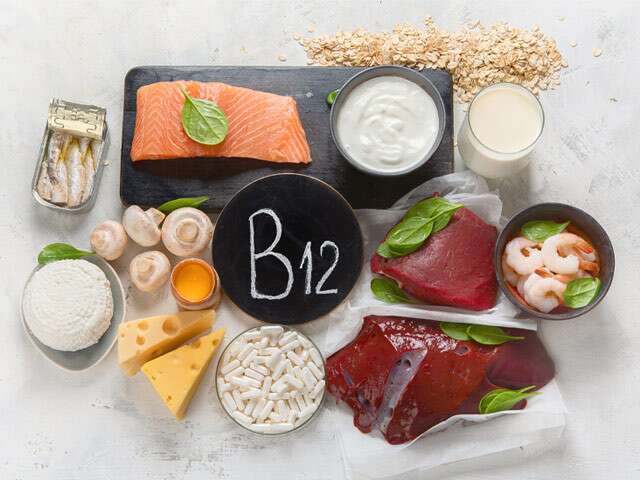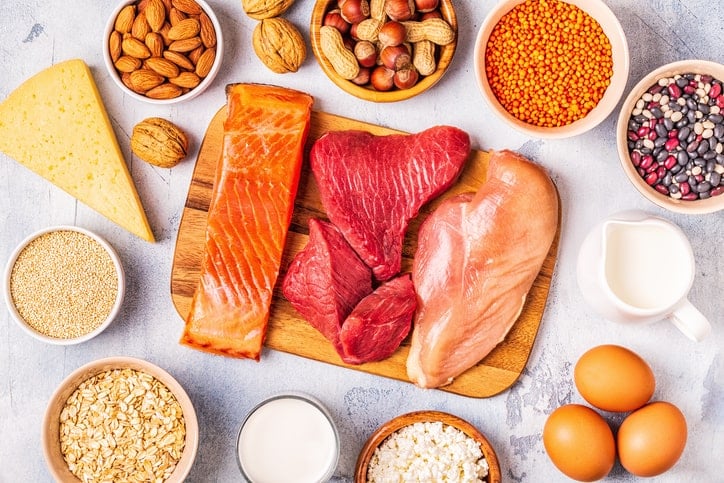
The Ultimate Guide to Vitamin B12-Rich Foods
Are you looking to boost your vitamin B12 intake? This essential nutrient plays a crucial
Are you looking to boost your vitamin B12 intake? This essential nutrient plays a crucial role in maintaining energy levels, supporting the nervous system, and promoting healthy red blood cell formation. While vitamin B12 deficiency is relatively uncommon, certain groups (such as vegans and vegetarians) may be at a higher risk of deficiency. Fear not! This ultimate guide will unveil the top vitamin B12-rich foods, ensuring you get your daily dose of this vital nutrient.
Why is Vitamin B12 Important?

Before we dive into the food sources, let’s explore why vitamin B12 is so vital for our overall health. This water-soluble vitamin is involved in several key bodily functions, including:
- Energy production: Vitamin B12 is essential for the metabolism of fats and proteins, which provide energy for our cells.
- Red blood cell formation: It plays a crucial role in the production of red blood cells, which carry oxygen throughout the body.
- Neurological function: Vitamin B12 supports the health of the nervous system, helping to prevent conditions like peripheral neuropathy.
- DNA synthesis: This vitamin is necessary for the synthesis of DNA, the genetic material in our cells.
Needless to say, maintaining adequate vitamin B12 levels is crucial for optimal health and well-being.
Top Vitamin B12-Rich Foods

Now, let’s explore the best food sources of vitamin B12, both from animal-based and plant-based sources.
Animal-Based Vitamin B12 Foods
- Organ Meats: Liver, kidney, and heart are among the richest sources of vitamin B12. Just a 3.5-ounce serving of beef liver can provide a whopping 1,176% of your daily vitamin B12 needs.
- Shellfish: Clams, oysters, and mussels are excellent sources of vitamin B12. For example, a 3-ounce serving of cooked clams provides around 84% of your daily requirement.
- Fish and Seafood: Salmon, tuna, trout, and cod are all good sources of vitamin B12. A 3-ounce serving of cooked salmon can provide up to 82% of your daily needs.
- Meat and Poultry: Beef, pork, chicken, and turkey are all excellent sources of vitamin B12, with varying amounts depending on the cut and cooking method.
- Eggs: While not as high as some other animal sources, eggs are still a good source of vitamin B12, with one large egg providing around 6% of your daily needs.
- Dairy Products: Milk, cheese, and yogurt are fortified with vitamin B12, making them good sources for those who consume dairy products.
Plant-Based Vitamin B12 Foods
For those following a vegan or vegetarian diet, it’s important to include reliable sources of vitamin B12, as this nutrient is primarily found in animal-based foods. Here are some plant-based options:
- Nutritional Yeast: This deactivated yeast is often fortified with vitamin B12, making it a popular choice for vegans and vegetarians. Just two tablespoons can provide up to 100% of your daily vitamin B12 needs.
- Fortified Plant-Based Milk: Many plant-based milk alternatives, such as soy, almond, and oat milk, are fortified with vitamin B12, making them excellent sources for those on a plant-based diet.
- Fortified Cereals and Meat Alternatives: Some breakfast cereals and meat alternatives, like veggie burgers and sausages, are fortified with vitamin B12, providing a convenient way to boost your intake.
It’s important to note that while some plant-based foods may contain small amounts of vitamin B12, the bioavailability (the amount that can be absorbed and used by the body) is often lower compared to animal-based sources.
Frequently Asked Questions (FAQs)
1. Can vitamin B12 deficiency be prevented through diet alone?
For most people, a well-balanced diet that includes vitamin B12-rich foods can help prevent deficiency. However, certain groups, such as strict vegans and vegetarians, may need to supplement their diet with vitamin B12 or consume fortified foods to ensure adequate intake.
2. What are the symptoms of vitamin B12 deficiency?
Symptoms of vitamin B12 deficiency can include fatigue, weakness, constipation, loss of appetite, weight loss, and neurological issues like numbness or tingling in the hands and feet. If left untreated, severe deficiency can lead to more serious complications.
3. Can you get too much vitamin B12 from food sources?
It’s highly unlikely to consume too much vitamin B12 from food sources alone. This water-soluble vitamin is excreted through urine, making it difficult to reach toxic levels through diet alone. However, it’s important to consult with a healthcare professional before taking high-dose vitamin B12 supplements.
4. How much vitamin B12 do I need per day?
The recommended daily intake (RDI) of vitamin B12 for adults is 2.4 micrograms (mcg). However, requirements may be higher for certain groups, such as pregnant or breastfeeding women, and older adults, who may have decreased absorption.
5. Are there any interactions between vitamin B12 and medications?
While vitamin B12 is generally safe, it’s always a good idea to consult with your healthcare provider about potential interactions with any medications you may be taking, especially for conditions like diabetes or certain forms of anemia.
Conclusion
Incorporating vitamin B12-rich foods into your diet is essential for maintaining overall health and well-being. Whether you’re an omnivore or follow a plant-based diet, there are plenty of delicious options to choose from. By including a variety of animal-based and fortified plant-based sources, you can ensure that you’re meeting your daily vitamin B12 needs. Remember, if you have any concerns about your vitamin B12 levels or dietary intake, it’s always best to consult with a healthcare professional for personalized advice.
You Can Also Read Here The Ultimate Guide to Brazil Nuts: Health Benefits and Uses
